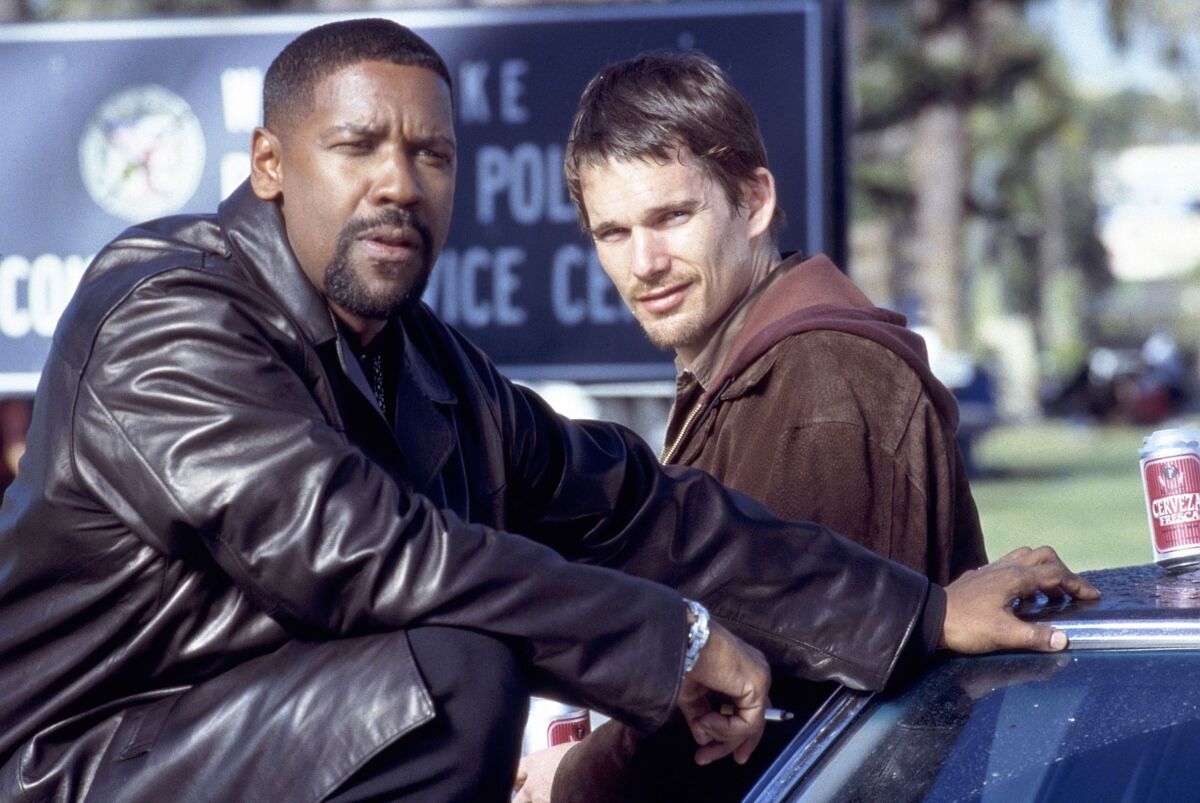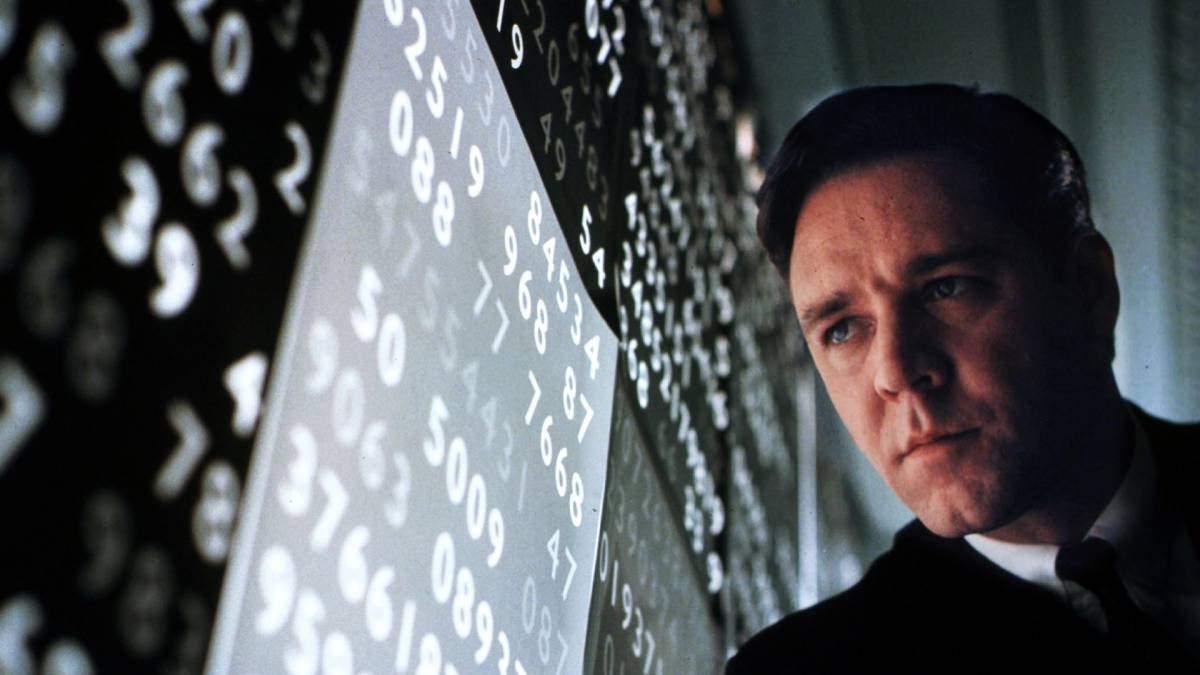At a stupefying four hours and twenty-three minutes, the 74th annual Academy Awards is the longest Oscar show on record. That’s an impressive leap from a show that originally clocked in at 15 whole minutes in 1929. That doesn’t necessarily translate to an entertaining show, and indeed, the show suffered overall from a numbing blend of tributes, montages, and musical performances. Everything ran just a bit too long, and some critical reviews reflected that frustration.
Not even Whoopi Goldberg, a generally well-liked host, or seeing Halle Berry and Denzel Washington make Oscar history with their wins for Best Actress and Best Actor, could hide the fact that the show had clearly reached some sort of peak.
Nonetheless, despite its gargantuan running time and controversial winners (you don’t have to travel very far to find someone who considers Picture winner A Beautiful Mind to be one of the worst Best Picture winners of all time), the 2002 Oscars is, in hindsight, an interesting piece of history.
With that in mind, let’s take a look at the “Big 5” for that year, and see where these movies are standing in the present.
Best Screenplay (Original/Adapted) – A Beautiful Mind (Adapted), Akiva Goldsman / Gosford Park (Original), Julian Fellowes

Since there are two screenwriting awards given out, and since the Big 5 tends to just say Best Screenplay, we’re going to look at both winners.
It was a big night for A Beautiful Mind, as it would turn out. The argument that A Beautiful Mind beat better movies would begin here. It’s not unreasonable, considering the other nominees included Ghost World, the nuanced and devastating In The Bedroom, the first Lord of the Rings film, and indeed, Shrek. Most of those films have had longer lifespans than A Beautiful Mind. Take out the benefit of hindsight. People were mad even back then, although most of that anger would be directed to other prizes later on.
Then we have Gosford Park, which returned director Robert Altman to the limelight one more time. The script, weaving clever dialog with heavy doses of plot and character development, and keeping all of that pretty entertaining throughout, had a lot to do with the success of the film. The win is hard to argue with, although the film’s original screenplay came out against a sterling list of contenders, including The Royal Tenenbaums, Memento, Amélie, and Monster’s Ball. Compelling cases can be made for all of them.
Best Actress – Halle Berry in Monster’s Ball

The first African-American to win Best Actress, it can’t be argued that Halle Berry inhabited a character in the controversial (the discrepancy between critical and user reviews on Rotten Tomatoes is interesting) Monster’s Ball that is impossible to forget. This is a film steeped in utter misery in its story of a waitress Leticia (Berry) who begins a relationship with a racist prison guard named Hank (Billy Bob Thornton), who has a lot of stuff going on with his father (Peter Boyle) and son (Heath Ledger). The movie naturally uses these relationships to talk about race. Your mileage on that part will probably vary.
Still, Halle Berry proved in no uncertain terms that she could bring her own weight and humanity to dramatic roles with the same power as she could in comedies or action films. Monster’s Ball can be justifiably criticized on a variety of fronts, but Berry makes her character more than just an instrument for tragedy. Without her, the movie would be mostly forgettable.
Her Oscar win was deserved and a big deal. The tragedy of course in this context is that her hope that the win would open the door to other actresses of color has thus far been lacking, to put it kindly.
Best Actor – Denzel Washington in Training Day

The second African-American to win Best Actor (the last time had been in 1963), Denzel Washington had been a contender for years. For someone on this level, even in Hollywood, it really was just a matter of time before something stuck with the Oscar voters.
The appeal of his portrayal of a crooked cop in director Antoine Fuqua’s Training Day is partially based on the novelty of seeing Washington turn his overwhelming charisma and charm into something far more sinister than anything we had seen up to that point. Of course, behind those star-making qualities is also a fundamentally good actor in every possible regard. Washington brought his best talents to playing an unrepentant, mesmerizing SOB. Corrupt and contemptible in every possible regard, one of Washington’s many triumphs in the role is in how seductive he makes evil seem. It’s a natural quality, his character suggests, but it’s also a hell of a lot of fun.
This is perhaps the best-aged win of all the 2002 Oscar winners. People are still talking about this role, and Fuqua and Washington have gone on to do several excellent action movies together. Training Day is as over-the-top as it gets. Then and now, not the kind of movie the Academy generally lavishes with attention.
Best Director – Ron Howard for A Beautiful Mind
Generally ranked at-or-near-to the bottom of any given ranking of 21st century Oscar winners for Best Director, many feel that Ron Howard’s win was more of an acknowledgement of Howard’s long track record as one of Hollywood’s best directors than anything to do with A Beautiful Mind. It’s almost objectively not the best movie Ron Howard as ever directed, but its momentum was not going to be denied at the ceremony.
While Howard’s direction of the film is fine, albeit a little overreaching, the favorite to win in many minds was David Lynch for Mulholland Drive. This would be another example of two movies in which the one that didn’t win the Oscar is better-liked and better-remembered than the one that did. Peter Jackson, Robert Altman, and Ridley Scott were all also contenders for making some of the best works of their respective careers.
If anyone can make Oscar bait palatable, it’s Ron Howard, but it’s worth noting that most of his efforts in this particular arena since have fallen with a thud come Oscar season.
Best Film – A Beautiful Mind

Between popular choices like Moulin Rouge and The Fellowship of the Ring, not to mention Gosford Park and In the Bedroom, a lot of viewers and critics alike treated A Beautiful Mind’s win with potent hostility. The film was considered shameless Oscar bait by some and received more negative reviews than the other four it competed against.
While perhaps not terrible, the fact is that the film’s mixed reception as Best Picture for 2002 has transitioned into being a movie that hardly anyone seems to remember anymore. It does offer style and good performances, but it’s not a terribly memorable film. Once again, this becomes glaringly apparent when we keep in mind that many of the films nominated across all the categories have fared better over the last twenty years.
There’s nothing inherently wrong with an industry awards show simply acknowledging the moment, and not necessarily considering how a film will be judged by future generations. That shouldn’t be anyone’s responsibility, really, but wins like A Beautiful Mind do much to suggest the possibility that the Oscars are no longer the tastemakers they were once considered to be.
READ NEXT: 10 Forgotten Oscar Winners Over The Years
Some of the coverage you find on Cultured Vultures contains affiliate links, which provide us with small commissions based on purchases made from visiting our site. We cover gaming news, movie reviews, wrestling and much more.



